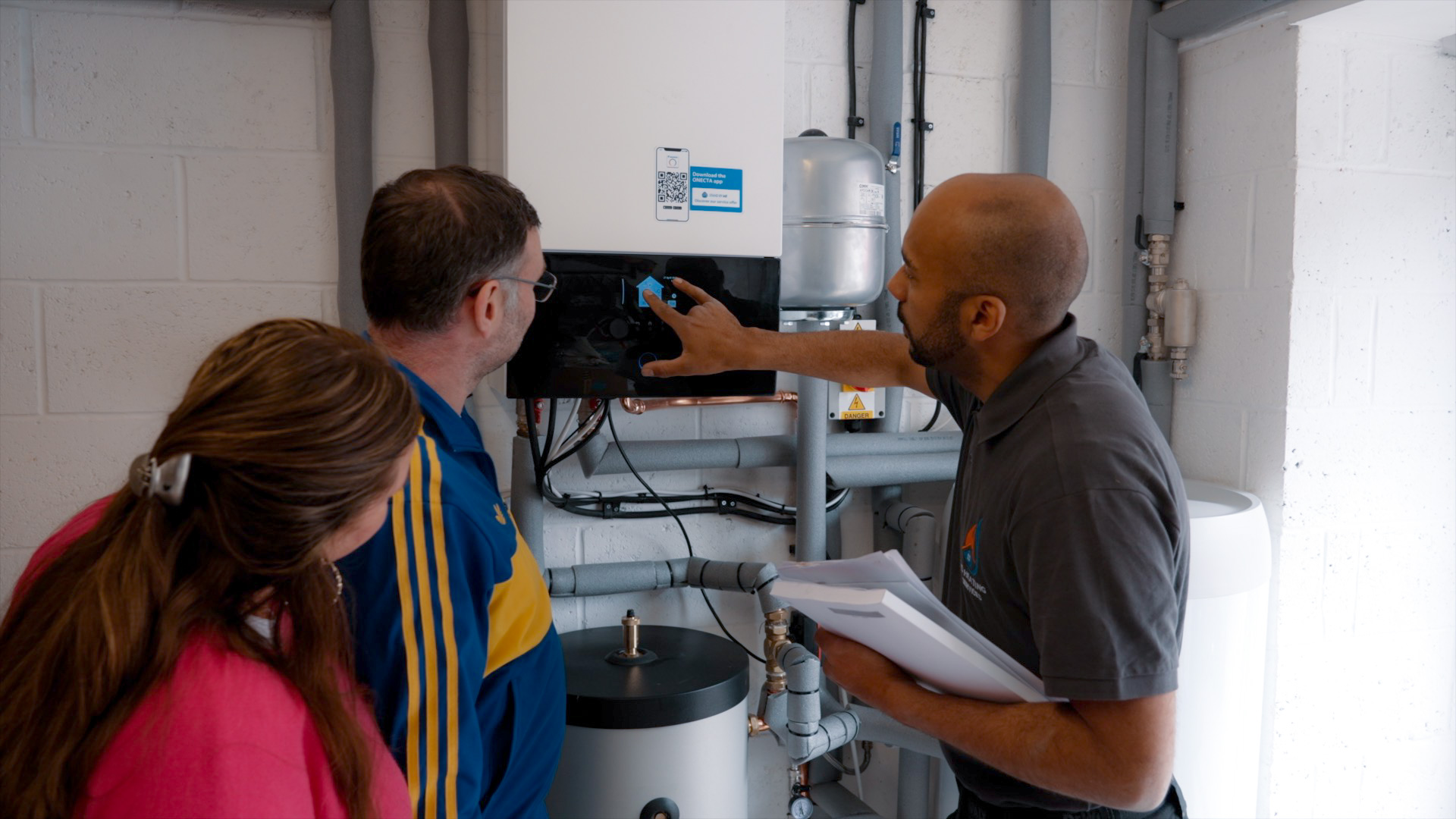Government uncertainty over heat pumps and over hydrogen’s role in home heating is slowing adoption of the devices and infrastructure planning, a new National Audit Office (NAO) report has found.
The public spending watchdog lambasts today mixed signals from ministers. These, it claims, imperil their goal of 600,000 domestic installations of the devices by 2028.
Home heating represents 18% of UK carbon emissions, according to the Climate Change Committee. Its independent scientists say £162 Billion of extra investment is needed over three decades to 2050 to install low-carbon heating in the UK’s 28 million households.
The flagship Boiler Upgrade Scheme is underperforming, the NAO finds, with under 19,000 pumps installations completed between May 2022 and last December. D-ESNZ had expected it to deliver 50,000 installations by this point.
Boosting last year the BUS grant to householders to £7,500 – roughly 60% of an average pump installation – has still left take-up running at half the rate needed, according to the NAO’s report out today.
BUS applications in January 2024 had risen nearly 40% in twelve months, the report accepts. But more data is required to determine whether that’s a just blip.
The UK’s shortage of qualified technicians also slows the market, leaving upfront costs of installation falling more slowly than Whitehall had hoped.
Fear of high usage costs are another drag in cleaning home heat, the NAO reports today. D-ESNZ delayed its planned work to reduce running costs, shifting some levies & charges from electricity to gas bills. The department says that price rebalancing remains an essential policy but is challenging.
The watchdog’s head Gareth Davies also finds D-ESNZ has no long-term plan to raise low levels of awareness among households of the steps needed to decarbonise home heating.
“DESNZ’s progress in making households aware and encouraging them to switch to low-carbon alternatives has been slower than expected”, Davies notes.
Upgrading gas grids to accept green hydrogen is one option. DESNZ is developing its understanding of the consequences for gas networks of decarbonising home heating. But trials intended to inform government’s decisions have been delayed or cancelled, says the NAO.
Stakeholders told researchers continuing uncertainty is likely to limit the ability of local authorities and industry to plan and invest, to slow progress.
The NAO recommends government considers providing more certainty on the role of hydrogen in home heating before 2026.
“The NAO is right to highlight the serious challenge posed by low consumer awareness,” Good Energy CEO Nigel Pocklington responded.
“We commissioned Opinium research who found almost a quarter of UK residents mistakenly think that running a heat pump costs more than a gas boiler”, Pocklington said. “A fifth believe they only work in newer homes.
The supplier’s boss declared; “We’ll continue running our own campaigns to counter the myths and misinformation.
“But the Government must step up as well, and avoid net zero being a potential ‘culture war’ issue.”




